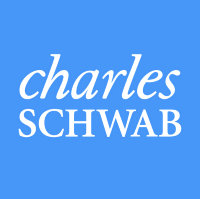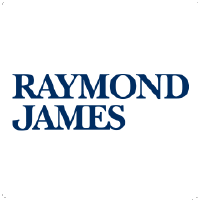
Robinhood Markets Inc
NASDAQ:HOOD


Utilize notes to systematically review your investment decisions. By reflecting on past outcomes, you can discern effective strategies and identify those that underperformed. This continuous feedback loop enables you to adapt and refine your approach, optimizing for future success.
Each note serves as a learning point, offering insights into your decision-making processes. Over time, you'll accumulate a personalized database of knowledge, enhancing your ability to make informed decisions quickly and effectively.
With a comprehensive record of your investment history at your fingertips, you can compare current opportunities against past experiences. This not only bolsters your confidence but also ensures that each decision is grounded in a well-documented rationale.
Do you really want to delete this note?
This action cannot be undone.

| 52 Week Range |
34.17
152.46
|
| Price Target |
|
We'll email you a reminder when the closing price reaches USD.
Choose the stock you wish to monitor with a price alert.
This alert will be permanently deleted.
Net Margin
Net Margin shows how much profit a company keeps from each dollar of sales after all expenses, including taxes and interest. It reflects the company`s overall profitability.
Net Margin shows how much profit a company keeps from each dollar of sales after all expenses, including taxes and interest. It reflects the company`s overall profitability.
Peer Comparison
| Country | Company | Market Cap |
Net Margin |
||
|---|---|---|---|---|---|
| US |

|
Robinhood Markets Inc
NASDAQ:HOOD
|
97.7B USD |
Loading...
|
|
| US |

|
Morgan Stanley
NYSE:MS
|
300.9B USD |
Loading...
|
|
| US |

|
Goldman Sachs Group Inc
NYSE:GS
|
288.5B USD |
Loading...
|
|
| US |

|
Charles Schwab Corp
NYSE:SCHW
|
185.5B USD |
Loading...
|
|
| US |

|
Coinbase Global Inc
NASDAQ:COIN
|
64.8B USD |
Loading...
|
|
| EG |

|
EFG Hermes Holdings SAE
LSE:EFGD
|
167.9B USD |
Loading...
|
|
| US |

|
Interactive Brokers Group Inc
NASDAQ:IBKR
|
124.4B USD |
Loading...
|
|
| CN |

|
CITIC Securities Co Ltd
SSE:600030
|
413.6B CNY |
Loading...
|
|
| CN |

|
Guotai Junan Securities Co Ltd
SSE:601211
|
354.2B CNY |
Loading...
|
|
| US |

|
Raymond James Financial Inc
NYSE:RJF
|
33.8B USD |
Loading...
|
|
| US |

|
LPL Financial Holdings Inc
NASDAQ:LPLA
|
30.3B USD |
Loading...
|
Market Distribution

| Min | -4 418 600% |
| 30th Percentile | -9.6% |
| Median | 3.1% |
| 70th Percentile | 11.3% |
| Max | 1 135 400% |
Other Profitability Ratios
Robinhood Markets Inc
Glance View
Robinhood Markets Inc., the financial services powerhouse founded in 2013 by Vladimir Tenev and Baiju Bhatt, set out to demystify investing for the general populace. The company's inception was rooted in a bold mission: to democratize finance for all. By eliminating traditional barriers such as high commission fees and minimum balance requirements, Robinhood tapped into the digital-savvy younger demographic eager to enter the stock market. Central to Robinhood's allure is its sleek, user-friendly mobile app that empowers users to trade stocks, options, and cryptocurrencies with ease. Further enhancing its utility are features like fractional shares, which allow users to invest in expensive stocks at a more accessible price point, thereby broadening participation to novice investors with limited capital. The brilliance of Robinhood's business model lies in its ability to offer commission-free trading while maintaining profitability. The company primarily generates revenue through a practice known as "payment for order flow," earning a small fee by routing its users' trades to market makers. In addition, Robinhood makes money by lending out user deposits and offering a premium service, Robinhood Gold, which provides members with additional features such as margin trading and professional research. While these strategies have proven lucrative, they have also attracted scrutiny and regulatory challenges, illustrating the company's delicate balancing act between innovation and compliance in a highly regulated industry. Despite these challenges, Robinhood has cemented itself as a seminal force in modern finance, continually transforming the way individuals engage with the stock market.

See Also
Net Margin is calculated by dividing the Net Income by the Revenue.
The current Net Margin for Robinhood Markets Inc is 52.2%, which is above its 3-year median of -2.7%.
Over the last 3 years, Robinhood Markets Inc’s Net Margin has increased from -95.9% to 52.2%. During this period, it reached a low of -95.9% on Sep 30, 2022 and a high of 52.2% on Sep 30, 2025.



